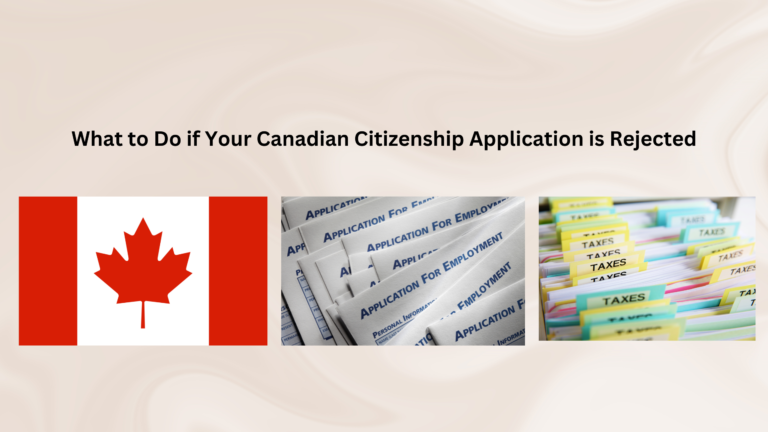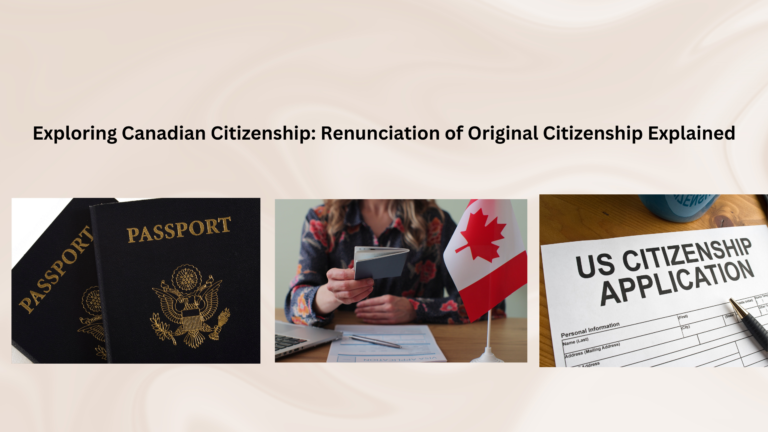Requirements for Canadian Citizenship Application
Navigating the path to Canadian citizenship can be a complex process.
Understanding the requirements and procedures is crucial for a successful application.
This comprehensive guide aims to demystify the process. It provides a detailed overview of the eligibility criteria, application process, and timeline for obtaining Canadian citizenship.
We will delve into the benefits of becoming a Canadian citizen, the importance of permanent resident status, and the role of language proficiency, among other key aspects.
Whether you are a permanent resident planning to apply for citizenship, an immigration consultant, or simply interested in understanding the process, this guide is for you.
Understanding Canadian Citizenship
Canadian citizenship is more than just a status. It’s a commitment to the values, traditions, and responsibilities that define Canada as a nation.
As a citizen, you become part of a diverse community that respects the rights and freedoms of all its members. You also gain the right to participate in the democratic process, including the right to vote and run for public office.
However, obtaining Canadian citizenship is not a straightforward process. It requires meeting specific eligibility criteria, passing a citizenship test, and taking an oath of citizenship.
Understanding these requirements and the application process is the first step towards becoming a Canadian citizen.
The Path to Becoming a Canadian Citizen
The journey to Canadian citizenship begins with understanding the eligibility criteria. This includes having permanent resident status, living in Canada for a certain period, and demonstrating proficiency in English or French.
The process also involves completing an application, passing a citizenship test, and attending a citizenship ceremony. Each step is crucial and requires careful preparation and understanding.
Citizenship Eligibility Criteria
To apply for Canadian citizenship, you must meet several eligibility criteria. These requirements ensure that you have a strong connection to Canada and are committed to contributing to the country’s future.
The first requirement is that you must have permanent resident status. This means you have been granted the right to live in Canada indefinitely, but you are not yet a citizen.
You must also have lived in Canada for at least 1,095 days during the five years before the date of your application. This requirement ensures that you have a substantial connection to Canada.
In addition, you must have filed taxes in Canada for at least three years during the five years before the date of your application. This demonstrates your financial commitment to the country.
Finally, you must demonstrate proficiency in either English or French, Canada’s official languages, and pass a citizenship test.
Permanent Resident Status and Physical Presence
Having permanent resident status is a prerequisite for applying for Canadian citizenship. This status is granted to individuals who have been allowed to live and work in Canada indefinitely.
However, simply having permanent resident status is not enough. You must also have been physically present in Canada for at least 1,095 days during the five years before the date of your application.
This physical presence requirement ensures that you have a substantial connection to Canada and are familiar with the country’s culture, traditions, and way of life.
Language Proficiency and Age Requirements
Proficiency in either English or French, Canada’s official languages, is another key requirement for Canadian citizenship. This requirement ensures that you can communicate effectively in Canada and participate fully in Canadian society.
If you are between the ages of 18 and 54, you must also pass a language test to demonstrate your proficiency. This test assesses your ability to speak, listen, read, and write in either English or French.
In addition to the language requirement, you must also pass a citizenship test. This test assesses your knowledge of Canada’s history, values, institutions, and symbols.
Tax Filing in Canada
Filing taxes in Canada is another important requirement for citizenship. You must have filed taxes in Canada for at least three years during the five years before the date of your application.
This requirement demonstrates your financial commitment to Canada and ensures that you have contributed to the country’s economy.
The Citizenship Application Process
The process of applying for Canadian citizenship involves several steps. Each step is designed to assess your eligibility and commitment to becoming a Canadian citizen.
The first step is to ensure that you meet all the eligibility criteria. This includes having permanent resident status, being physically present in Canada for the required number of days, filing taxes in Canada, and demonstrating language proficiency.
Once you have confirmed your eligibility, you can begin the application process. This involves completing an application form, gathering the necessary documentation, and paying the application fee.
The steps in the application process are as follows:
- Confirm your eligibility
- Complete the application form
- Gather the necessary documentation
- Pay the application fee
- Submit your application
Documentation and Application Forms
The documentation required for the citizenship application includes proof of your permanent resident status, proof of your physical presence in Canada, and proof of your language proficiency. You may also need to provide additional documents depending on your specific circumstances.
The application form for Canadian citizenship is known as the Application for Canadian Citizenship – Adults (Form CIT 0002). This form must be completed accurately and truthfully. Any false or misleading information could result in your application being denied.
Once you have completed the application form and gathered all the necessary documentation, you can submit your application. You will also need to pay the application fee at this time.
Citizenship Knowledge Test and Interview
After you have submitted your application, you will be required to take the citizenship knowledge test. This test assesses your understanding of Canada’s history, values, institutions, and symbols.
The test is usually written, but it may be oral depending on your specific circumstances. If you pass the test, you will be invited to a citizenship interview.
The citizenship interview is an opportunity for a citizenship officer to review your application and documents, verify your language proficiency, and assess your knowledge of Canada. If you pass the interview, you will be invited to the citizenship ceremony.
Citizenship Ceremony and Oath of Citizenship
The final step in the citizenship application process is the citizenship ceremony. This is a formal ceremony where you will take the oath of citizenship and officially become a Canadian citizen.
During the ceremony, you will swear or affirm your loyalty and commitment to Canada. After the ceremony, you will receive your citizenship certificate, which is proof of your Canadian citizenship.
Citizenship Timeline and Processing
The timeline for the Canadian citizenship application process can vary depending on several factors. These include the completeness of your application, the volume of applications received by Immigration, Refugees and Citizenship Canada (IRCC), and any delays due to additional checks or requests for more information.
The steps in the citizenship application process and their estimated timelines are as follows:
- Confirm your eligibility: Immediate
- Complete the application form: Varies depending on individual
- Gather the necessary documentation: Varies depending on individual
- Pay the application fee: Immediate
- Submit your application: Immediate
- Take the citizenship knowledge test: 4-6 months after application submission
- Attend the citizenship interview: 6-8 months after application submission
- Attend the citizenship ceremony: 10-12 months after application submission
Average Processing Times and Delays
The average processing time for a Canadian citizenship application is approximately 12 months. However, this is just an average and the actual processing time can be shorter or longer depending on your specific circumstances.
Delays in the processing of your application can occur for several reasons. These include incomplete or inaccurate application forms, missing or insufficient documentation, the need for additional checks or information, and high volumes of applications.
Checking Application Status and Avoiding Mistakes
You can check the status of your citizenship application online through the IRCC website. This will allow you to see where your application is in the processing queue and if any action is required on your part.
To avoid common mistakes that can delay your application, ensure that you complete the application form accurately and truthfully, provide all the necessary documentation, and respond promptly to any requests for additional information. It’s also important to keep your contact information up to date so that IRCC can reach you if needed.
The Benefits of Canadian Citizenship
Becoming a Canadian citizen comes with a host of benefits that enhance the quality of life and provide opportunities for personal and professional growth. These benefits extend beyond the individual to their family and future generations.
As a Canadian citizen, you gain the right to vote in federal, provincial, territorial, and municipal elections. This gives you a voice in the democratic process and allows you to influence the direction of the country. You also gain the right to run for political office, providing an opportunity to serve your community and country.
Canadian citizenship also provides international mobility benefits. As a Canadian citizen, you are entitled to a Canadian passport, which is one of the most powerful passports in the world. This allows you to travel to many countries without the need for a visa.
The benefits of Canadian citizenship include:
- The right to vote and run for political office
- Access to a Canadian passport and visa-free travel to many countries
- The right to apply for government jobs that require citizenship
- Access to all social benefits that Canada provides to its citizens
- Protection under Canadian law and the Canadian Charter of Rights and Freedoms
Rights and Responsibilities of Canadian Citizens
As a Canadian citizen, you have certain rights and responsibilities. These are enshrined in the Canadian Charter of Rights and Freedoms, which forms part of the Canadian Constitution.
Your rights as a Canadian citizen include the right to freedom of expression, religion, and association. You also have the right to live, work, or study anywhere in Canada, and the right to enter and leave the country freely.
Dual Citizenship and International Mobility
Canada recognizes dual citizenship. This means that you can be a citizen of Canada and another country at the same time. Dual citizenship can provide additional benefits, such as access to social services, education, and employment opportunities in both countries.
As a Canadian citizen, you also gain increased international mobility. With a Canadian passport, you can travel to many countries around the world without needing a visa. This makes international travel easier and more convenient.
Conclusion and Next Steps
Applying for Canadian citizenship is a significant step towards securing a future in a country known for its high standard of living, diverse culture, and abundant opportunities. Understanding the requirements and process is crucial to ensure a successful application.
Once you have met all the eligibility criteria, gathered your documents, and prepared for the citizenship test, you can submit your application. Remember to check your application status regularly and update your personal information if necessary. With patience and diligence, you can navigate the citizenship process and enjoy the benefits of being a Canadian citizen.







